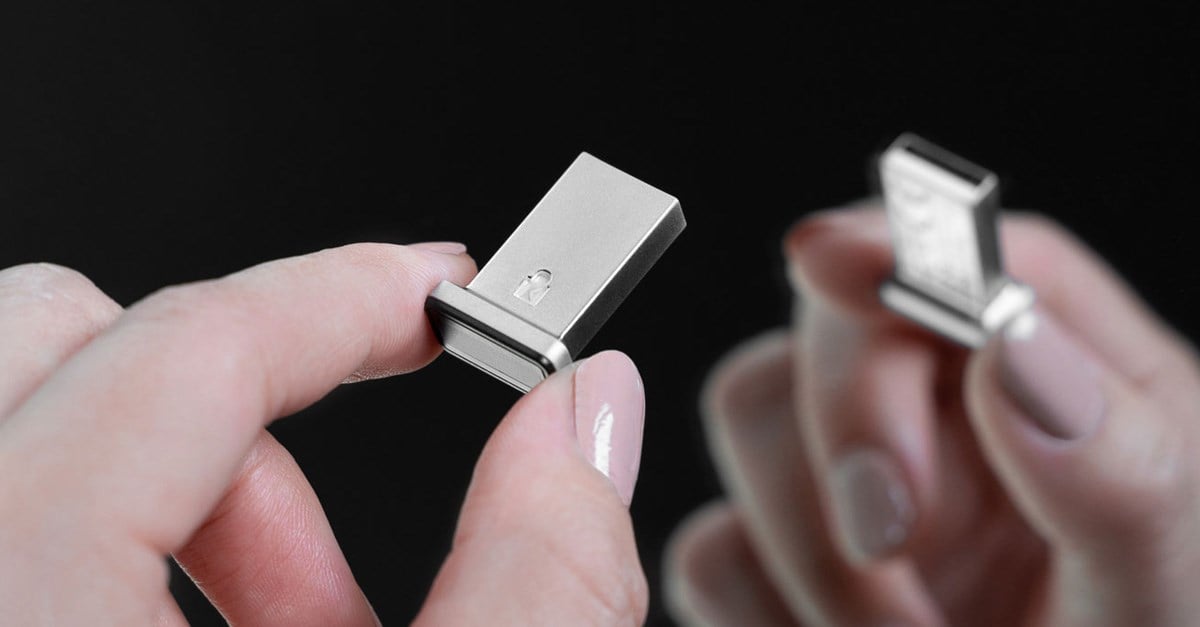
Advantages of biometrics, specifically of fingerprint scanners, include:
- Improved security.
- Higher accuracy.
- Faster access.
- Greater convenience.
- Increased affordability.
- Flexibility guaranteed.
Changes to data protection laws, company policies, and greater risks posed by cybercriminals to information systems led to rapid advances and implementation of the technology for a variety of access control situations.
Over the last two decades, the technology evolved and there is a variety of biometric authentication systems available today.
Table of contents:
- What is Biometric Authentication
- How Does Biometric Authentication Work?
- Advantages of Biometrics (Fingerprint Scanners)
- Industries Applying Biometric Authentication for Improved Security
- Improving Your Information Security with Biometric Authentication Solutions
What is Biometric Authentication
Biometric authentication solutions use the same forensic criteria to manage access control (either physical or digital) to sensitive areas or information systems.
With biometric solutions, governments, enterprises, and online services could safely provide access to systems with multi-factor authentication.
Some types of biometric authentication tools available are:
- Fingerprint scanners
- Facial and voice recognition
- Iris scanners
- Hand geometry
Using the above technologies, you can deploy a secure access model using password-less authentication for enhanced security.
How Does Biometric Authentication Work?
First, you register your information in a system and connect it to your profile. How the system matches your information to the stored records depends on the type of biometrics involved.
For the system to work, there are three types of technologies involved:
- Scanner or sensor – A highly accurate scanning or sensing device used to capture your biometric information.
- Computer or system – The information system where you store the biometric information enabling you to retrieve it in the future for comparison with live data.
- Software or application – A program that manages the interface between the sensor and the computer system while carrying out a comparison.
The most common type of biometric authentication available today is fingerprint scanners. The scanners and software are becoming more common in laptops, mobile devices, or as a connected peripheral to improve your device security.
Although voice and face recognition solutions exist, the technology is still prohibitively expensive and, in some cases, struggle with accuracy.
Due to the years of research and the accuracy of the comparison methods, fingerprint scanners have become the preferred biometric authentication method for today’s computer systems.
Fingerprint scanners evolution
Older fingerprint scanners used match-on-host technology, while Kensington collaborated with the leader of biometric systems to develop our solutions.
Synaptics built a completely, hardware encapsulated fingerprint scanner using Match-in-Sensor technology instead of Match-on-Host.
With its System-on-Chip architecture, it performs all authentication on a single chip and eliminates the need to send information back and forth to the host system.
Called hardened authentication, it makes the fingerprint scanners even more secure.
Advantages of Biometrics (Fingerprint Scanners)
Information security presents a problem for all individuals and organizations. To improve system security, developers and manufacturers have tried a host of different approaches.
Password systems remained the standard but were vulnerable to hacking. The more secure systems you use, the more passwords you have to remember or store in a safe place.
Even Single Sign-On (SSO) systems remain vulnerable as it creates a single point of failure.
Advantages of biometrics and fingerprint scanners include:
- Improved security – Provides a secure and comfortable access control solution that doesn’t expose your information to cybercriminals.
- Higher accuracy – As one of the most sophisticated biometric modalities, fingerprint scanners provide almost 100% of accuracy during authentication.
- Faster access – Compared to typing a password, a fingerprint scanner can lock and unlock your workstation or device quickly. Plus, you will no longer have to remember complex passwords.
- Greater convenience – Forgetting even one password can be frustrating and you should never use the same password for different systems. Fingerprint scanners increase device and application-level security without overburdening the user with numerous credentials.
- Increased affordability – Although password management comes free with devices and software systems, fingerprint authentication is an affordable solution that delivers greater security for any kind of secure access control.
- Flexibility guaranteed – Fingerprint scanners come in flexible designs, are easy to enroll and deploy, and require little or no maintenance except to update the software.
- Standards met – Solutions comply with the latest secure authentication standards like FIDO and FIDO2 (or WebAuthn). These standards provide a secure, online access system for sites and services using biometric authentication.

Industries Applying Biometric Authentication for Improved Security
Automotive industry
Due to its versatility, accuracy, and convenience, biometric authentication is finding applications in a range of different industries. Automotive companies are using iris and fingerprint scanners to lock, unlock, and start vehicles. The automotive biometric authentication industry will grow by 17% Compound Annual Growth Rate (CAGR) until 2024.
Banking and Healthcare
In the financial sector, biometric methods have become vital in preventing customer fraud. For healthcare, it provides greater convenience, reduces human error, and protects personal information. Consumers also prefer using this authentication method. According to MasterCard, 93% of customers wanted biometric authentication when using financial services.
Corporate Offices and Buildings
More employers are turning to automated and integrated access and security controls using biometric authentication. You can control all security information from a central, encrypted location while limiting access to both physical space and network locations effectively. By 2018, 57% of organizations were using fingerprint scanners as part of their authentication systems, according to a Spiceworks survey.
Retail Sectors
Whether it’s online or brick and mortar retail, the customer’s experience is one of the most important considerations for businesses. While retailers scramble to improve the user journey and provide value-added services, information security may suffer. Fingerprint biometric technologies uniquely overcome these challenges efficiently.
Government Agencies
Biometric authentication can help government agencies shore up internal security and public-facing operations. Portable digital fingerprint scanners help law enforcement quickly retrieve records on individuals. Biometrics also help to make schools safer while improving the integrity of academic records.
Education
Access control and data protection are now essential in schools and academic institutions. Biometric authentication can help secure the school’s academic records, improve integrity by ensuring valid students enter examination halls, and limit access throughout the facility. The institution can also streamline operations with time and attendance management, library checkouts, and identifying attendees during a lockdown or emergency procedure.
Improving Your Information Security with Biometric Authentication Solutions
With portable biometric fingerprint scanners, you can ensure you always have the best security for your device. A USB-based VeriMark™ IT Fingerprint Key comes with WebAuth and Windows Hello™ compatibility.
You can elevate all your system and device security with a compact, versatile fingerprint scanning solution. If you regularly work from outside the corporate network, it’s essential to have second-factor authentication when accessing business information.
Using a fingerprint key, you gain the advantage of enhanced security while working from home, the office, or any other location.
You can see our range of fingerprint keys with the latest biometric authentication technologies.